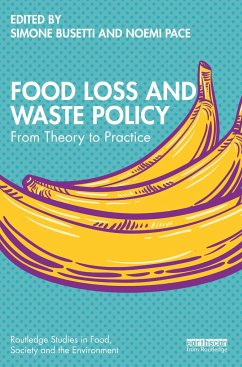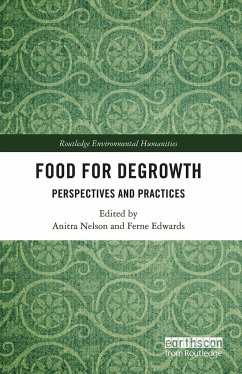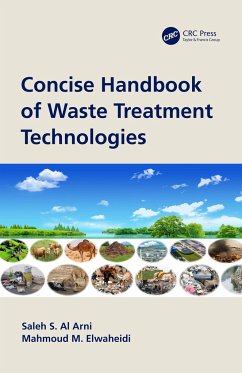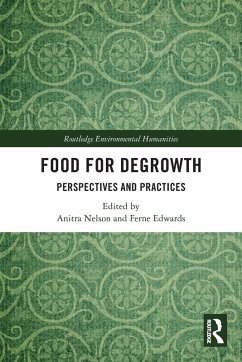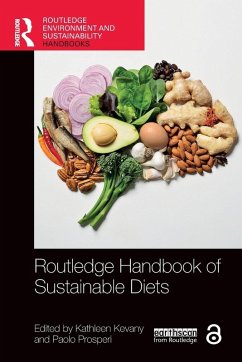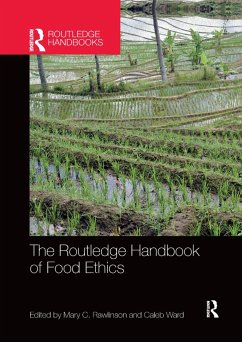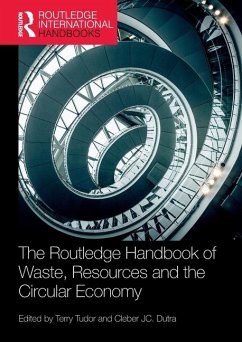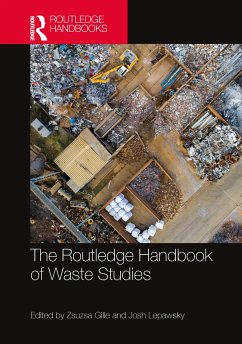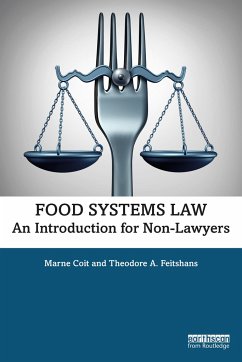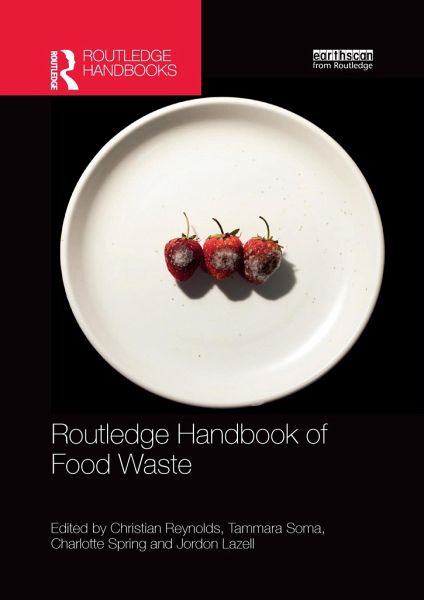
Routledge Handbook of Food Waste
Versandkostenfrei!
Versandfertig in 6-10 Tagen
49,99 €
inkl. MwSt.
Weitere Ausgaben:

PAYBACK Punkte
25 °P sammeln!
This comprehensive handbook represents a definitive state of the current art and science of food waste from multiple perspectives.The issue of food waste has emerged in recent years as a major global problem. Recent research has enabled greater understanding and measurement of loss and waste throughout food supply chains, shedding light on contributing factors and practical solutions. This book includes perspectives and disciplines ranging from agriculture, food science, industrial ecology, history, economics, consumer behaviour, geography, theology, planning, sociology, and environmental poli...
This comprehensive handbook represents a definitive state of the current art and science of food waste from multiple perspectives.
The issue of food waste has emerged in recent years as a major global problem. Recent research has enabled greater understanding and measurement of loss and waste throughout food supply chains, shedding light on contributing factors and practical solutions. This book includes perspectives and disciplines ranging from agriculture, food science, industrial ecology, history, economics, consumer behaviour, geography, theology, planning, sociology, and environmental policy among others. The Routledge Handbook of Food Waste addresses new and ongoing debates around systemic causes and solutions, including behaviour change, social innovation, new technologies, spirituality, redistribution, animal feed, and activism. The chapters describe and evaluate country case studies, waste management, treatment, prevention, and reduction approaches, and compares research methodologies for better understanding food wastage.
This book is essential reading for the growing number of food waste scholars, practitioners, and policy makers interested in researching, theorising, debating, and solving the multifaceted phenomenon of food waste.
The issue of food waste has emerged in recent years as a major global problem. Recent research has enabled greater understanding and measurement of loss and waste throughout food supply chains, shedding light on contributing factors and practical solutions. This book includes perspectives and disciplines ranging from agriculture, food science, industrial ecology, history, economics, consumer behaviour, geography, theology, planning, sociology, and environmental policy among others. The Routledge Handbook of Food Waste addresses new and ongoing debates around systemic causes and solutions, including behaviour change, social innovation, new technologies, spirituality, redistribution, animal feed, and activism. The chapters describe and evaluate country case studies, waste management, treatment, prevention, and reduction approaches, and compares research methodologies for better understanding food wastage.
This book is essential reading for the growing number of food waste scholars, practitioners, and policy makers interested in researching, theorising, debating, and solving the multifaceted phenomenon of food waste.





